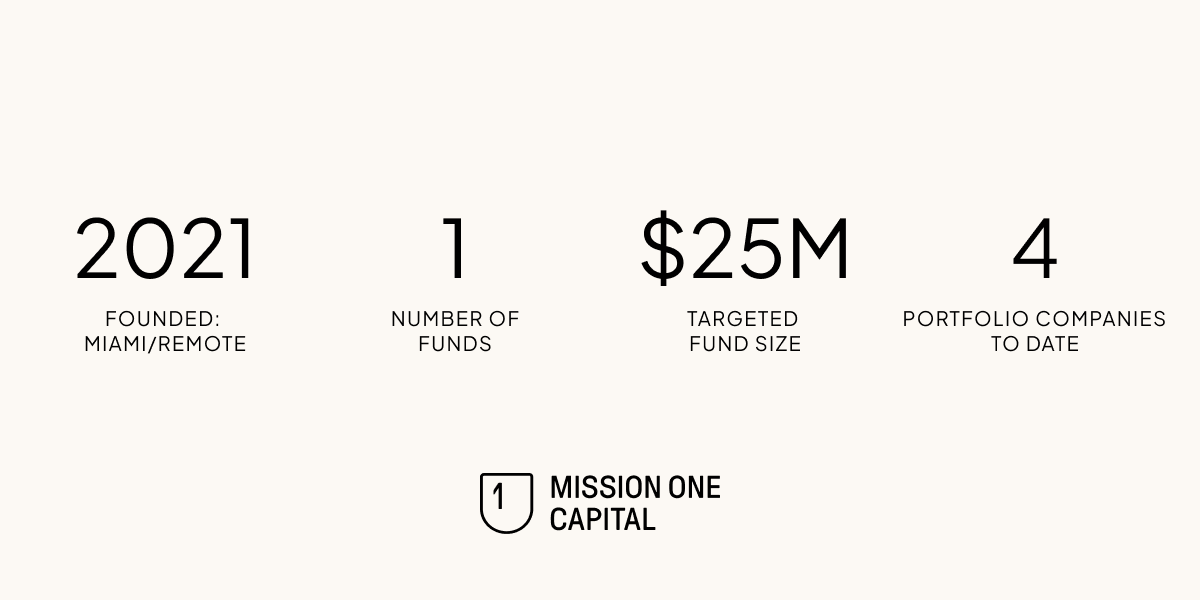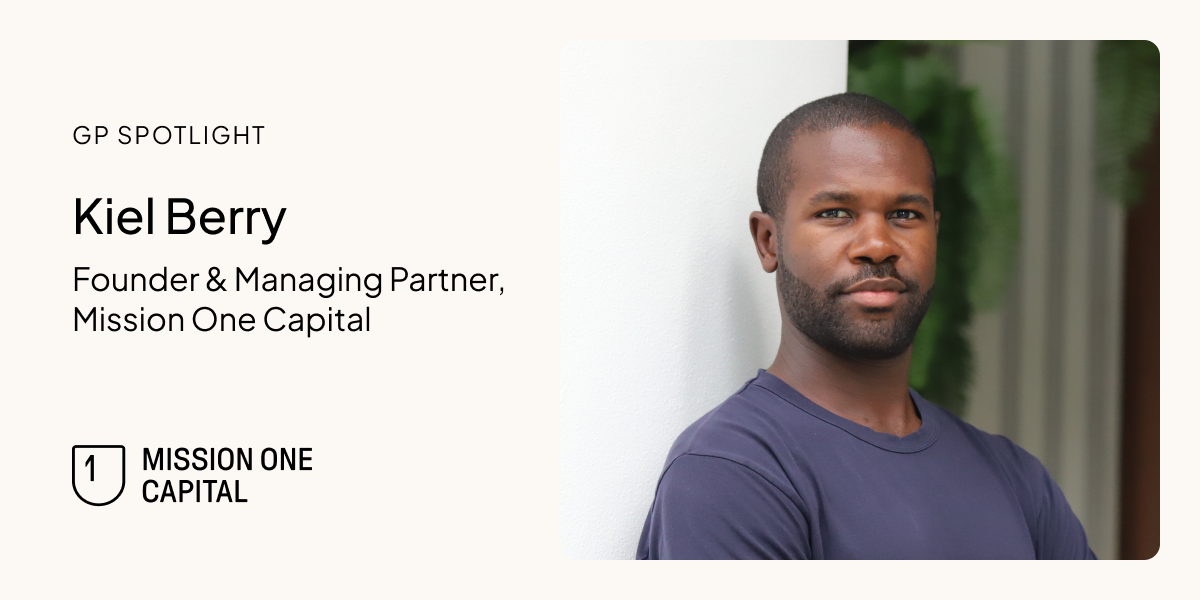Kiel Berry is an investor with a global outlook: He attended high school in Paris and started his career as an investment banker with posts in New York, London, and Johannesburg. Kiel’s work taught him how to see how business-model patterns from one part of the world could become emerging investment opportunities in another. It’s a lesson that informs his work as the general partner of Mission One Capital.
Mission One Capital invests in seed-stage companies that are moving the planet toward a more sustainable and equitable future. We spoke with Kiel to learn how Mission One understands early-stage investing, and how government regulation might supercharge the sustainability sector.

Nigeria:What sparked your interest in climate tech and sustainability?
Kiel:Back in my J.P. Morgan days, when I was doing banking in New York, I said to myself: “Okay, I learned finance—but how do I now start applying that to areas where I can see more impact?”
I started as an angel investor first. I thought: Let me put my money to work and really learn the space. I saw it as a way to flesh out my thesis over time by investing in companies across different industries within climate tech, to ultimately home in on what I wanted to focus on from an investment standpoint for Mission One.
Nigeria: Your investment thesis is focused on climate and sustainability, but includes a broad range of industries. Why is that?
Kiel: I’m looking for scalable business models first, industries second. I believe that the magic happens when a disruptive business model is applied to the right industry. For example, a data-enabled SaaS software to reduce food waste, a peer-to-peer marketplace for renewable energy credits, or a modular subscription for digital health.
Nigeria: What are you looking for when you evaluate founders?
Kiel: Especially at the seed stage, I’m trying to identify what the impact metric will be—something we can track as the company scales and becomes more successful. We look for an impact metric that’s directly tied to the business model so that as the business scales financially, so will its impact.
The impact metric is unique for each company. One of our portfolio companies, Zevvy, offers affordable electric vehicle leases to people with long commutes, like gig workers and essential workers. We calculated their impact by analyzing the amount of greenhouse gas emissions that would be avoided by switching to an EV versus an internal combustion engine. This impact metric directly ties to the company’s financial scalability, so we’ll be able to track it over time as the company grows.
When it comes to product-market fit, I often talk to founders who are very lofty in terms of what they think the world needs. But what do their customers need? Can they find customers who are obsessed with the products that they’re creating? Can we show that it’s working? I ask them: How do we make it scalable? How do we make it competitive?
Nigeria: What are the challenges of launching a seed-stage climate fund as a first-time GP?
Kiel: One of the big challenges was explaining that climate tech could yield outsized returns similar to other investment areas while driving sustainable change. Getting over that hump was hard in the beginning, but the conversation has completely changed. Now I’m getting calls from my friends who are generalist investors who are now seeing the opportunity, and dipping into climate more heavily. The challenge became an opportunity.
Nigeria: Talk more about those opportunities. Where are we in the development of climate tech investing, and where do you see things going?
Kiel: In the mid-2000s there was what is now called Cleantech 1.0, which was when largely Khosla Ventures and Kleiner Perkins were investing billions of dollars into mostly capital-intensive companies. I think 2.0 is where we are now. Costs have come down because of a lot of that investment in the early 2000s. The cost for solar is nearly at parity with other energy sources. And companies have learned to be much more capital efficient.
Cleantech 2.0 is realizing it doesn’t necessarily have to be hardware: There could be software solutions applied to climate. In the future, in Cleantech 3.0, I think all companies will have sustainability as a core tenet of their business models.
Nigeria: How will climate disasters impact climate tech investing?
Kiel: I’m based in Miami. We have a responsibility to be a climate hub—and an opportunity to showcase a lot of innovation—because we’re butting up against the climate problem. Just look at the flooding and damage caused by Hurricane Ian. As we see these existential threats continue to become more prevalent and severe, I hope founders will see these as opportunities to solve for the underlying problems.
When you think about the communities that are most impacted from climate change, they are typically communities of color and lower-income communities for a number of reasons that are unfortunate. But there’s specific earmarked capital in the Inflation Reduction Act to focus on that disparity. So not only is there blanket climate reform—which is necessary—but it’s also going to be specific about addressing disparate impacts in the most affected areas and communities.
I think about a Venn diagram with climate on one side and inequality on the other. Climate justice sits at the middle of that Venn diagram. There were already amazing startups working in that Venn diagram overlap. And now the IRA bill can potentially help to kickstart a lot of that innovation.
Nigeria:What are the advantages of having an investment thesis that includes Europe as well as the U.S.?
Kiel:What makes Europe really interesting from a sustainability investing standpoint is that the government regulation is almost forcing corporate hands to do certain things that maybe aren’t directly in their business interests in the short term. For example, businesses have to keep their carbon footprints at a certain level or they’re not able to do business within those markets. We have that in places like California. But we don’t have it at the national level.
Europe is a really interesting market to almost see ahead in terms of where the U.S. may end up when it comes to sustainability.
